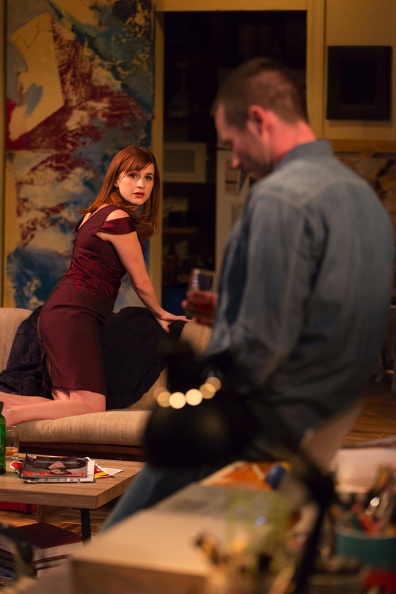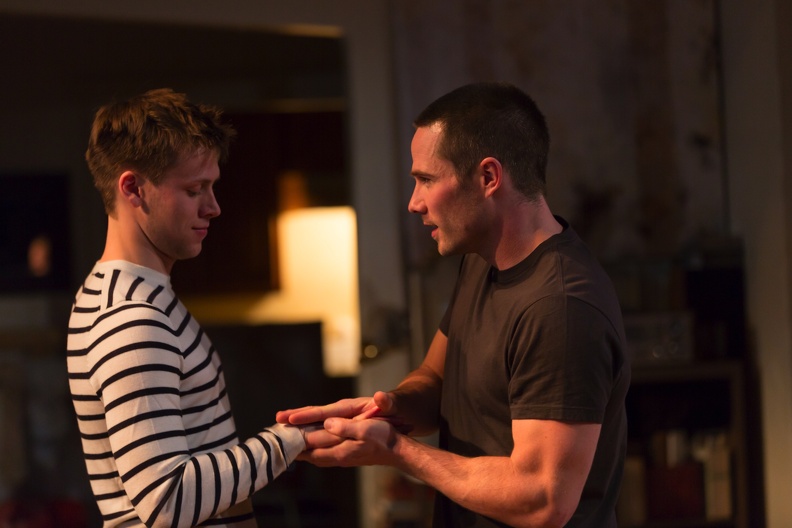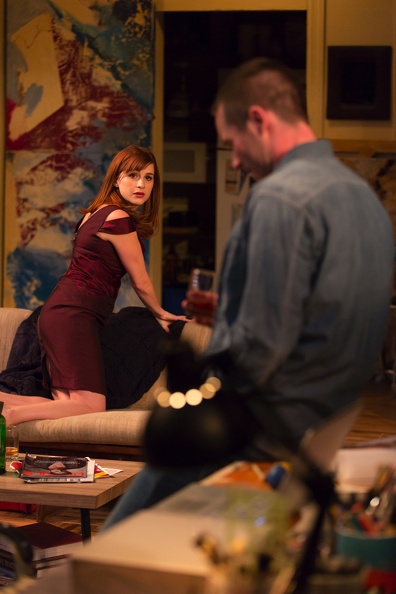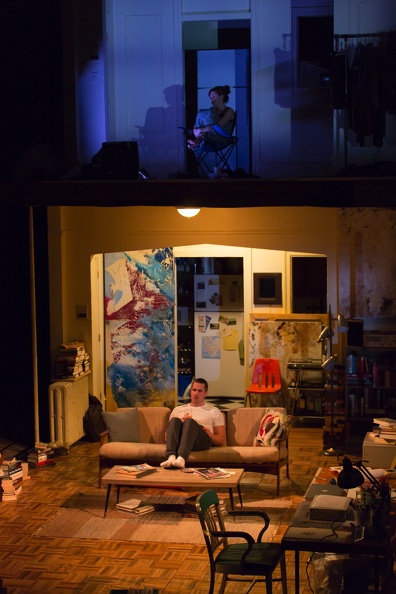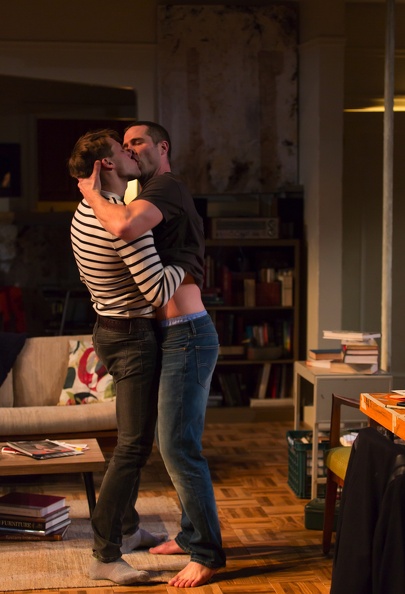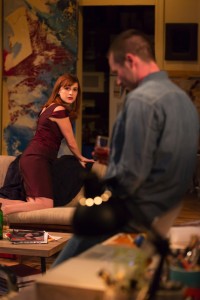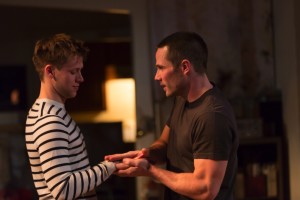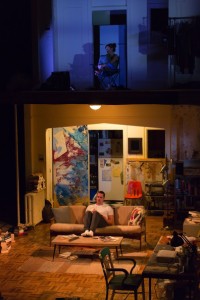Matthew Lopez has attached two epigraphs to his new play, Reverberation, now receiving its world premiere at Hartford Stage. One is from Jane Jacobs’ classic study of the American metropolis (“… cities are, by definition, full of strangers”) and the other is from James Baldwin’s taboo-smashing novel Another Country, a book that he has also cast in a pivotal role in the play itself: “It’s a lonely city … I’m lonely. Aren’t you lonely too?… Maybe we can comfort each other for a night.”
To these, the playwright might well have added E.M. Forster’s famous dictum, “Only connect.” Lopez’ intimate drama is all about intimacy and connection – that is, the lack of it, fear of it, longing for it.
The play centers on Jonathan, a gay man, and his relationships with two of his neighbors in the Astoria section of Queens. We meet him in mid-fuck with a younger man he’s just hooked up with on Grindr (there’s a “contains nudity” warning at the theater entrance). His one-hour date, Wes, would like to make it a regular thing, but Jonathan isn’t interested – in fact, can’t wait to get rid of the boy once the sex is done.
Jonathan’s a loner, a virtual agoraphobe who shuns any human contact beyond sexual drive-bys. All that changes when his new upstairs neighbor, Claire, injects herself uninvited into his life. Though aggressively gregarious, she, too, diligently avoids intimacy, flitting from one city, and one married man, to the next, all the while longing for a real relationship with “a real real boy.”
Jonathan, we learn in a chilling monologue, is carrying a dead weight of loss and grief. Claire’s insistent companionship – amplified by an upsetting brush with violence – begins to chip away at his shell, and the question for both of them becomes: Is loneliness too high a price to pay for emotional safety? As Claire says at one point, “The world is big and people are scary and it’s safer inside. But it’s also lonely inside.”
Lopez is the author of one of my favorite plays of the past five years, The Whipping Man, about angry, frightened survivors of the Civil War. Like Reverberation, it’s a three-character meditation on self-defeating self-protection, but while that play was subtle, ambiguous and edgy, this one – like Lopez’ Somewhere, seen at Hartford Stage last season – belabors its points in formulaic situations with few surprises until a final climactic collision of hope and fear.
Andromache Chalfant’s impressive two-level set, tenderly lit by Matthew Richards, shows us Jonathan’s book-strewn studio apartment with a cutaway of Claire’s identical, clothes-strewn flat cantilevered precariously above it. (But note if you’re buying tickets: The sightlines from both the side sections have limited views of some parts of the stage.)
Director Maxwell Williams makes good use of the dual settings as the action shifts between floors and sometimes plays contrapuntally in both. He guides his actors smoothly through the play’s episodic chronology – a bit too smoothly, in fact, when some rougher edges and less-expected choices could have counteracted some of the script’s overly sentimental clichés.
Within that parameter, the performances are persuasive and affecting. Luke MacFarlane’s Jonathan is a tightly wound spring that slowly begins to uncoil, contrasting nicely with Aya Cash’s Claire, a restless butterfly tentatively daring to alight. Carl Lundstedt makes the most of the comparatively minor role of Wes with an appealing boyishness and a mature feel for dramatic detail.

